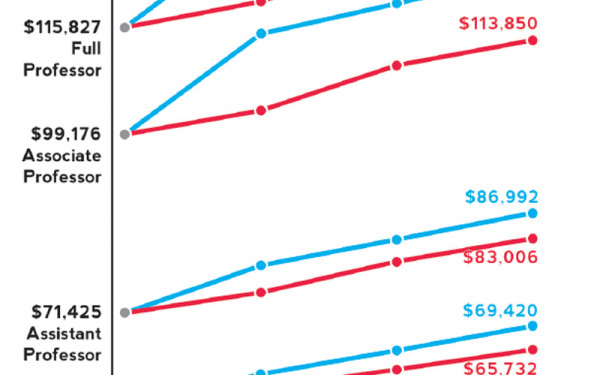No Good Faith for Concordia’s Unions
Following Faculty Strike Mandates, TRAC Now Contemplating Their Own
If 1.5 per cent of the students represented by Concordia’s teaching and research assistants union go to the annual meeting this Friday, the university’s TAs and RAs might be headed for a strike—but even getting those 30 people to show up is a challenge for the Teaching and Research Assistants at Concordia.
The union represents 2,000 people. But the students who work as TAs and RAs are largely unaware of what their rights are and how their union can help them.
Not so long ago before the days of TRAC, these students were sometimes treated like personal assistants. Jobs like making coffee and babysitting weren’t unheard of.
In many cases, the professor a TA or RA works under is the same person who is overseeing their thesis or grad work, something which makes the line between boss and mentor, or job and favour, easily blurred.
Concordia views these jobs as a form of financial aid. But it’s only secure for the first year of studies—after that the assistants are tasked with finding their own funding.
In other words, if students come to Concordia to complete a PhD, which could take seven years to finish, their job as a TA is only guaranteed for the first one.
“If you want the next contract, you don’t want to be seen as a problem, so you don’t want to complain too much,” said Robert Sonin, current president of TRAC. “You could be working for the supervisor who could be looking over your thesis. So you are in a pretty vulnerable position.”
This was the reality for Ryan Conrad, a TA during the 2011-2012 academic year, whose complaints allegedly cost him his next contract. Conrad attempted to assert his rights when he found out that a TA in another faculty was making $8 more an hour than he was.
Because he was working through the Faculty of Fine Arts, he was being paid $1,000 less than what the position had advertised.
However, as part of their contract TAs are required to deal with the university in “good faith” negotiations without escalating the situation to other groups. So after months of trying to resolve the issue through the appropriate channels, he filed an official grievance.
It resulted in a meeting between TRAC, Dean of Fine Arts Catherine Wild and members of the Faculty of Fine Arts, where it was decided that it was illegal to pay workers differently for the same job, meaning Conrad was owed the discrepancy in pay.
To counterbalance losing the extra money, the department would have to cut a position. Conrad lost his job. He had been hired in April and was told in June that his job no longer existed—already too late to find another position.
“It feels like [the situation was] malicious but I think that’s giving them too much credit,” Conrad said of the hundreds of hours of wasted time the department caused before making a decision.
“I do think I was singled out in that meeting where they decided, ‘Yes, we do owe this person money but we’re going to take away their job.’ That was malicious, there’s no question about that.”
Conrad said that TRAC was incredibly useful in how they worked to help him while he was dealing with this issue. But he added that the university in general does not take the union seriously.
“The full-time faculty voted to threaten to strike, and that’s finally when the university decided to get their heads out of their asses,” Conrad said, referencing the Concordia University Faculty Association’s recent vote for labour action.
“I just have a feeling that it’s going to have to come to that for TAs too. No one should go into good faith negotiations with the school, because the school has none. The school doesn’t listen, and doesn’t listen to TRAC,” he continued.Sonin said that if more people participated in the union the university would take them more seriously. The union works to get better contracts and pay for its members but he said that it needs the support of its members to do so.
“People need to come to show the university we have solidarity. If not we get the pat on the head ‘Oh, you’re students, you’re so cute,’” said Sonin. “It seems people come out when they’re angry at something. What we’re trying to say is that these are big issues.”
TRAC has been setting up posters all over campus and aims to call each of their members to remind them to attend. The annual meeting is scheduled to take place on April 5 in the Hall Building, where TRAC will be discussing points like bargaining and a strike.

_900_598_90.jpg)


_600_375_90_s_c1.jpg)
_600_375_90_s_c1.jpg)

